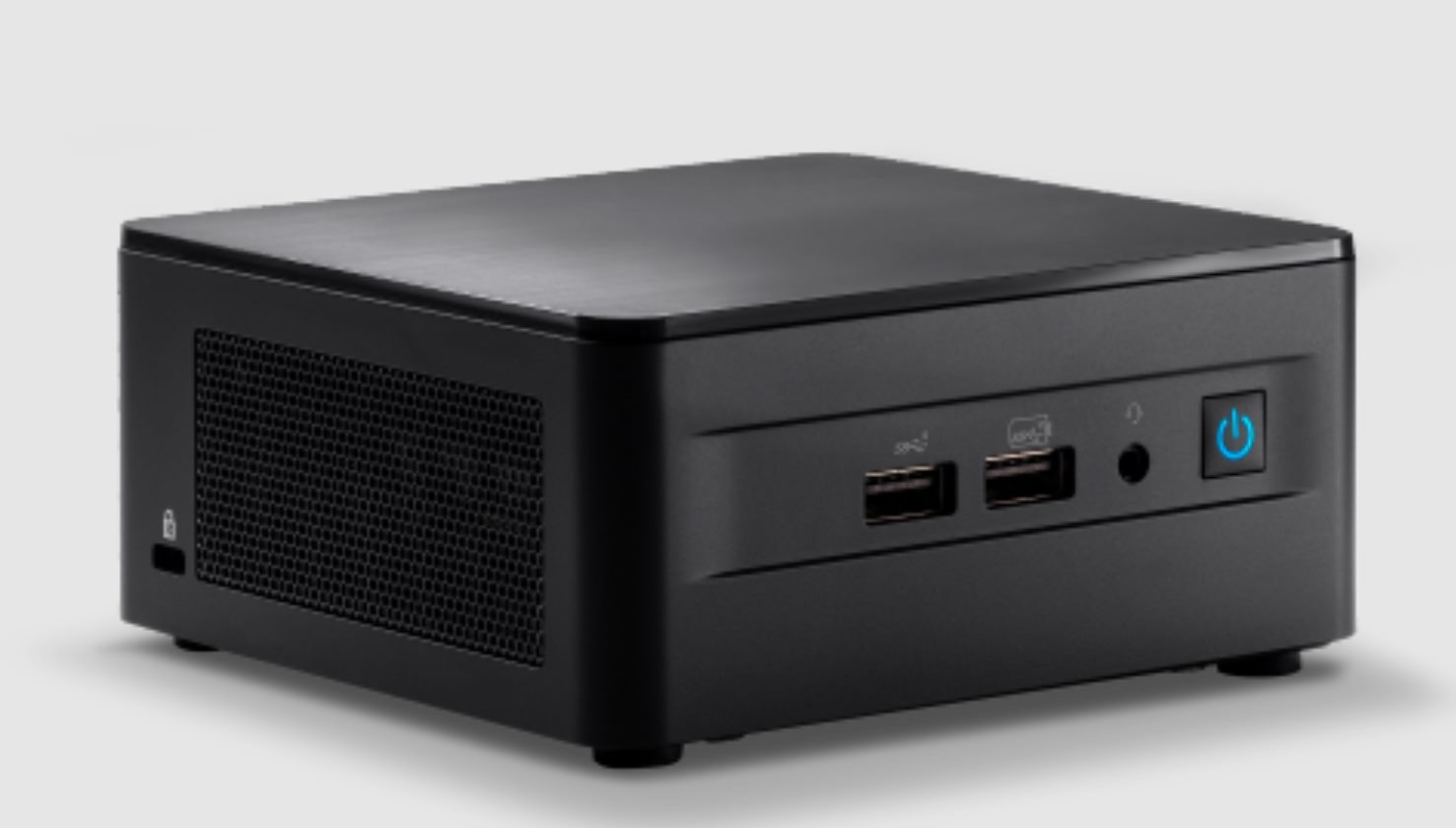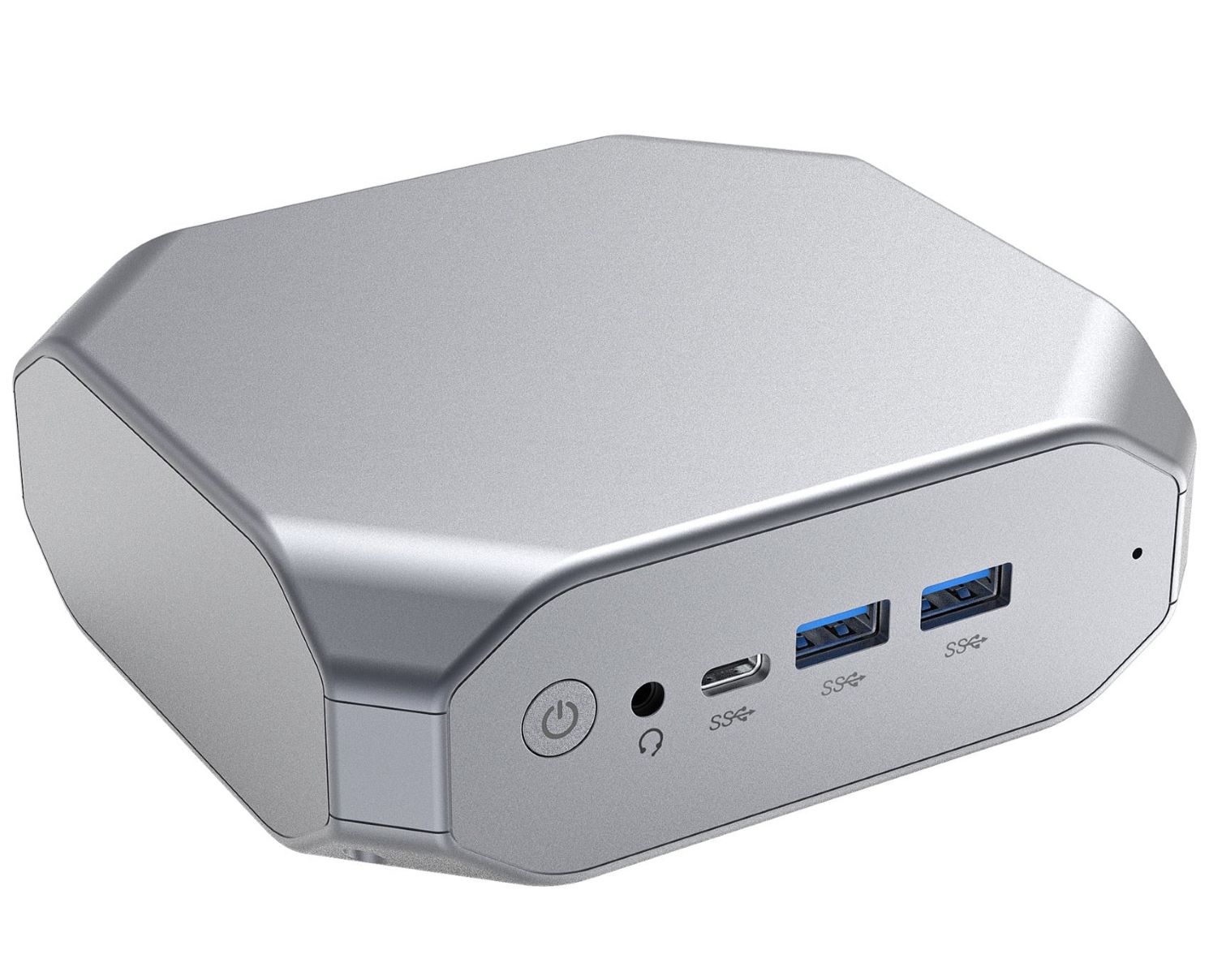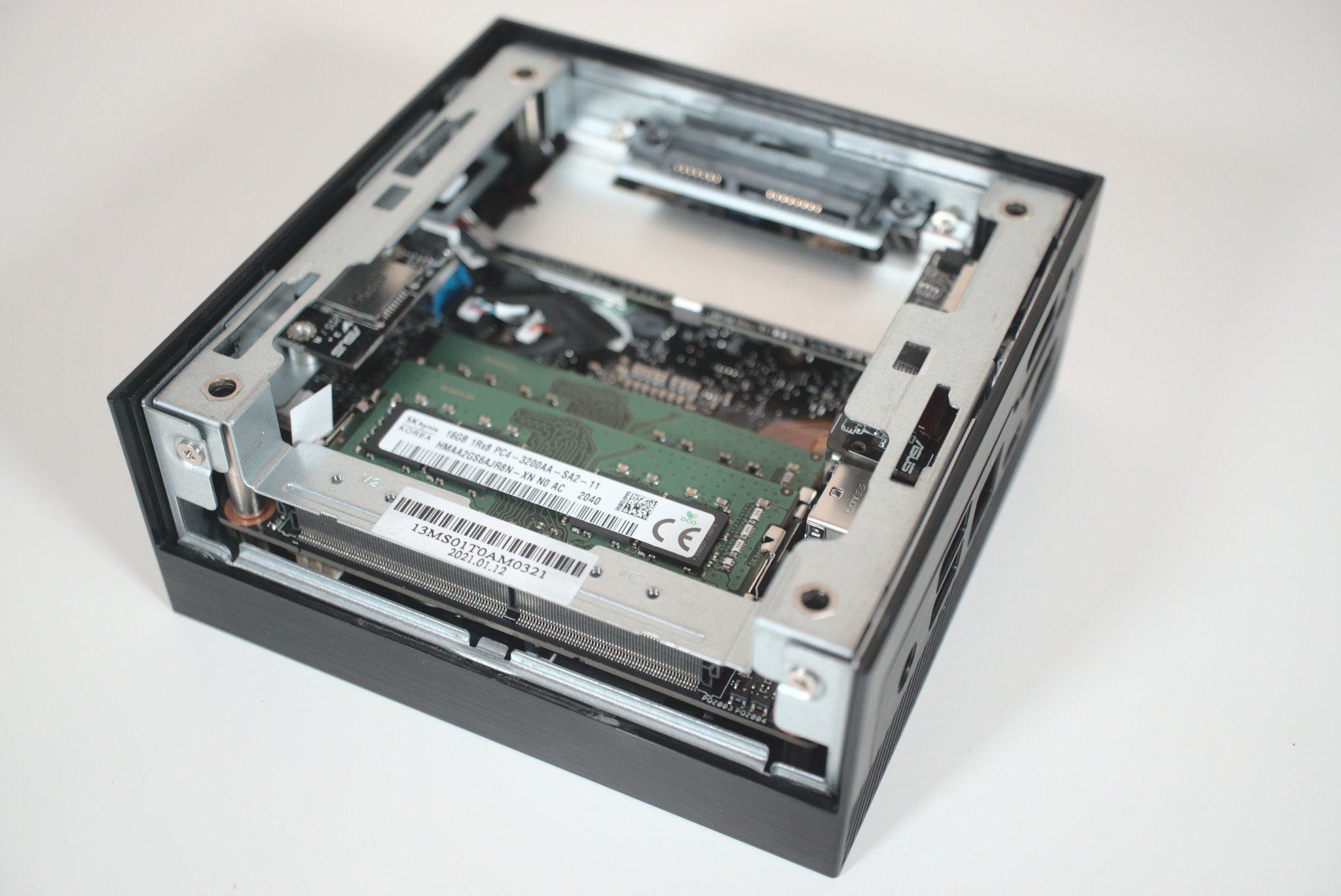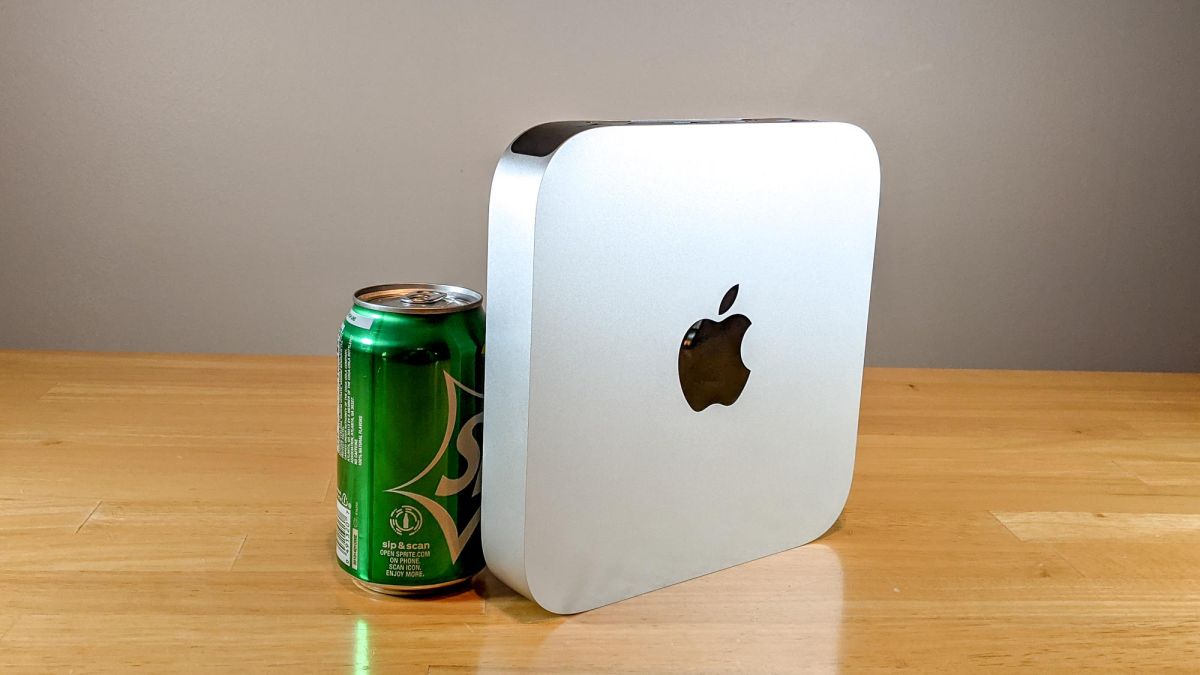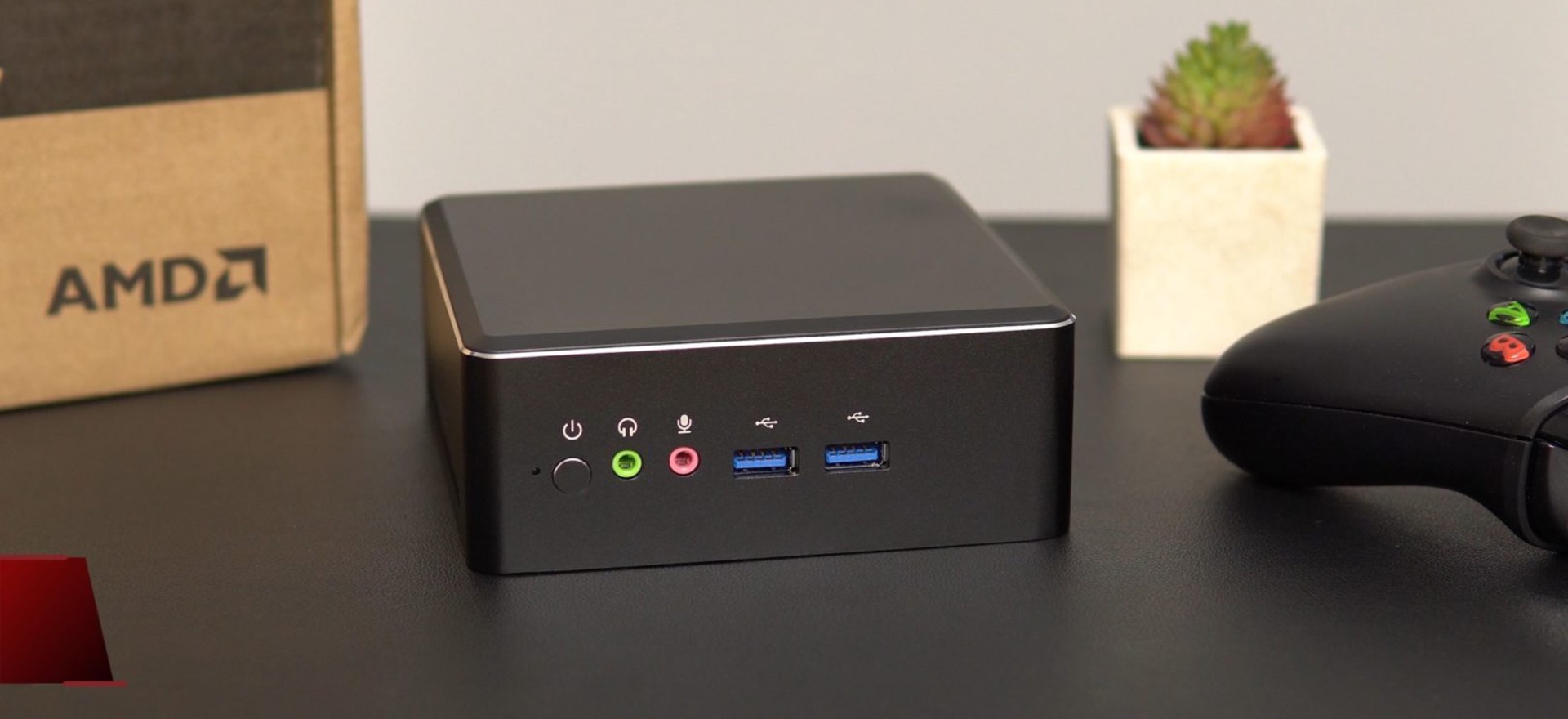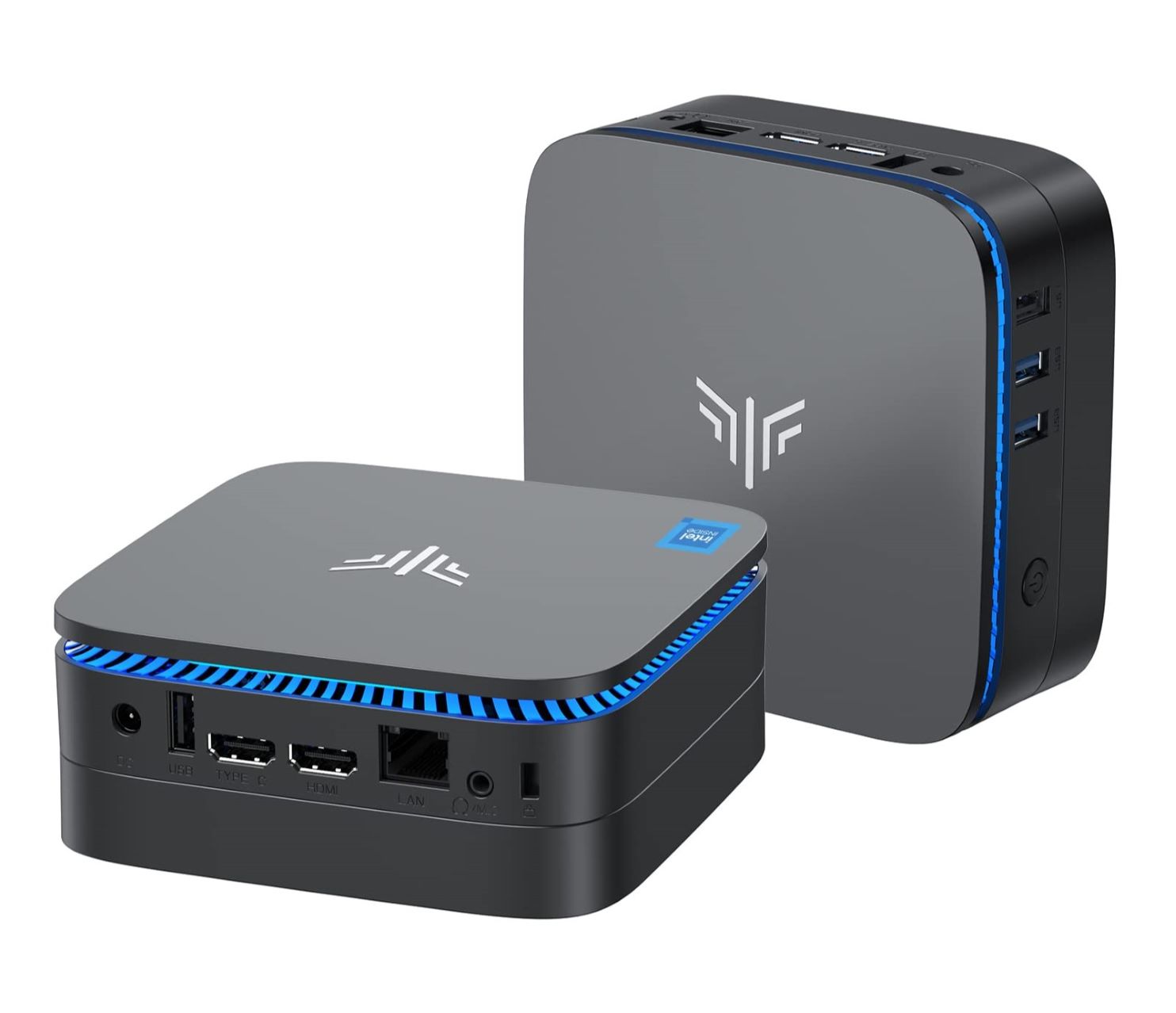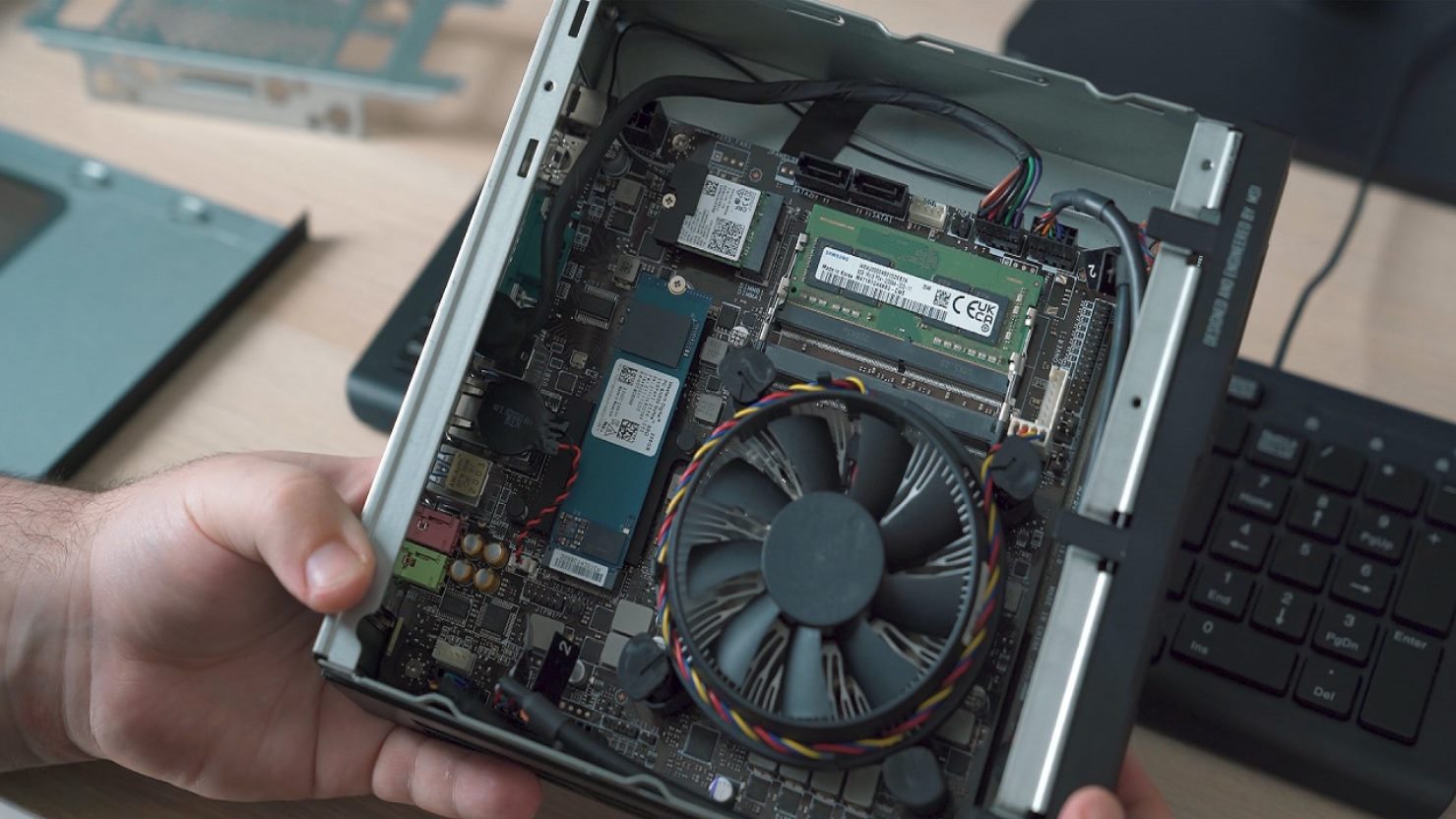Introduction
Welcome to the world of Mini PC NUCs! In this fast-paced digital era, traditional desktop PCs are slowly being replaced by compact and efficient alternatives. Mini PC NUCs, short for Next Unit of Computing, have emerged as a popular choice for those in need of a smaller and more portable computing solution. These tiny powerhouses pack all the features and capabilities of a traditional desktop PC into a compact and space-saving form factor.
But what exactly is a Mini PC NUC? In simple terms, it is a small form factor computer that is designed to deliver high-performance computing in a compact size. The term “NUC” was coined by Intel, the company that pioneered these mini PCs back in 2012. Since then, Mini PC NUCs have gained popularity among professionals, gamers, and casual users alike.
One of the key differences between a Mini PC NUC and a traditional desktop PC is its size. Mini PC NUCs are incredibly small, typically measuring around 4×4 inches or 5×5 inches. This compact size allows them to easily fit into tight spaces, making them ideal for small apartments, home offices, or even on-the-go computing.
Don’t let the size fool you though, Mini PC NUCs are packed with power. They feature advanced processors, high-speed RAM, ample storage options, and powerful graphics, allowing them to handle demanding tasks with ease. Whether you’re working on resource-intensive applications, editing videos, or playing graphically-intensive games, a Mini PC NUC can handle it all.
Moreover, Mini PC NUCs offer a plethora of connectivity options, including USB ports, HDMI ports, Ethernet ports, and wireless connectivity, giving you the freedom to connect various peripherals and accessories effortlessly.
In the following sections, we’ll delve deeper into the features, benefits, and applications of Mini PC NUCs, as well as provide some tips on how to set up your own Mini PC NUC. So, read on to discover why these miniature powerhouses have become a game-changer in the world of computing!
What is a Mini PC NUC?
A Mini PC NUC, or Next Unit of Computing, is a small form factor computer that combines the power and functionality of a traditional desktop PC with a compact and space-saving design. These miniature devices are designed for users who value portability without compromising on performance.
Mini PC NUCs are typically square or rectangular in shape and measure around 4×4 inches or 5×5 inches, making them significantly smaller than traditional desktop PCs. Despite their small size, Mini PC NUCs pack a punch when it comes to performance. They are equipped with powerful processors, sufficient RAM, and ample storage options, enabling them to handle various tasks like web browsing, office productivity, media streaming, and even light gaming.
One of the key advantages of Mini PC NUCs is their versatility. They can be used in a wide range of scenarios, including home offices, media centers, digital signage, and even as compact gaming systems. Their small size also makes them ideal for professionals who frequently travel and need a portable computing solution.
Mini PC NUCs are designed to be user-friendly and convenient. They often come with pre-installed operating systems, eliminating the need for additional setup and configuration. Additionally, they offer a multitude of connectivity options, including USB ports, HDMI ports, Ethernet ports, and wireless connectivity, allowing you to easily connect peripherals, displays, and other devices.
It’s important to note that Mini PC NUCs are not just limited to casual users. They are also used in commercial settings, such as digital signage solutions or as media players in conference rooms. The compact design of Mini PC NUCs allows for easy mounting behind monitors or TVs, providing a clutter-free setup.
Overall, Mini PC NUCs offer a powerful computing experience in a small and portable package. Whether you’re a tech enthusiast, a professional on the go, or someone looking to optimize space in their home or office, a Mini PC NUC can be a great choice. In the next section, we will compare Mini PC NUCs with traditional desktop PCs to better understand their differences and advantages.
Mini PC NUC vs Traditional Desktop PC
When it comes to computing, there are generally two options: mini PC NUCs and traditional desktop PCs. While both offer their own set of advantages and disadvantages, it’s important to understand the differences between the two to make an informed decision.
Size and form factor are the most obvious distinctions between mini PC NUCs and traditional desktop PCs. Mini PC NUCs are significantly smaller and more compact, often measuring around 4×4 inches or 5×5 inches. On the other hand, traditional desktop PCs have larger tower-like cases, which occupy more space and are less portable.
Performance-wise, mini PC NUCs are designed to deliver high-quality computing power despite their small size. With advanced processors, ample RAM, and powerful graphics capabilities, they can handle a variety of tasks, including multimedia editing, gaming, and office productivity. Traditional desktop PCs, on the other hand, typically offer higher performance potential due to their larger size and better cooling capabilities. They are often favored by gamers and professionals who require top-tier performance.
Another significant difference is the upgradeability and customization options. Traditional desktop PCs often allow for easy component upgrades, such as swapping out the graphics card or adding more storage. This flexibility allows users to keep their system up to date with the latest hardware advancements. Mini PC NUCs, however, have more limited upgrade options due to their compact size and integrated components. While it may be possible to upgrade the RAM or storage, some components may be non-upgradable or require specialized expertise to replace.
Connectivity options also differ between the two. Traditional desktop PCs typically offer a wide array of ports and expansion slots, allowing for easy connectivity to peripherals and expansion cards. Mini PC NUCs, despite their smaller size, still offer a decent range of connectivity options with USB ports, HDMI ports, Ethernet ports, and wireless connectivity. However, the number of ports and expansion options may be more limited compared to traditional desktop PCs.
Finally, price considerations play a significant role. Mini PC NUCs tend to be more compact and portable, which drives up their cost compared to traditional desktop PCs with similar specifications. Traditional desktop PCs often offer better value for money, especially when it comes to high-end performance.
Ultimately, the choice between a mini PC NUC and a traditional desktop PC depends on your specific needs and preferences. If space-saving, portability, and ease of use are your priorities, a mini PC NUC may be the perfect fit. Conversely, if you require top-notch performance, extensive upgrade options, and affordability, a traditional desktop PC might be more suitable.
In the next section, we will explore the benefits of using a Mini PC NUC to further understand why it has become such a popular choice in the computing world.
Benefits of Using a Mini PC NUC
Mini PC NUCs offer a range of benefits that make them an attractive choice for various computing needs. Whether you’re a professional, gamer, or casual user, here are some advantages of opting for a mini PC NUC:
Space-saving: One of the most obvious benefits of using a mini PC NUC is its compact size. These tiny devices take up significantly less space compared to traditional desktop PCs, making them perfect for small apartments, home offices, or cramped workspaces. You can easily place a mini PC NUC on your desk, mount it behind a monitor, or even tuck it away in a corner without sacrificing valuable space.
Portability: Mini PC NUCs are highly portable due to their small form factor and lightweight design. If you frequently travel or need to work from different locations, a mini PC NUC is a convenient option. You can easily pack it in a bag or carry case and take it with you wherever you go, ensuring your essential computing needs are always within reach.
Powerful performance: Despite their small size, mini PC NUCs are equipped with powerful processors, ample RAM, and robust graphics capabilities. This means you don’t have to compromise on performance when opting for a compact form factor. Whether you’re working on demanding applications, editing videos, or playing games, a mini PC NUC can handle it all with ease.
Energy-efficient: Mini PC NUCs typically consume less power compared to traditional desktop PCs. Their efficient design and low power components ensure that you save on energy costs without compromising performance. This makes mini PC NUCs a more environmentally friendly choice.
Quiet operation: Mini PC NUCs are designed to operate quietly. With their efficient cooling systems and low-power components, they generate minimal noise during operation. This is especially beneficial for those who prefer a quiet and distraction-free working or gaming environment.
Easy setup and maintenance: Mini PC NUCs are designed to be user-friendly and hassle-free. They often come with pre-installed operating systems, reducing the time and effort required for setup. Additionally, their compact size means there are fewer components to manage and maintain. Updates and upgrades can typically be done with ease, ensuring a smooth and efficient user experience.
Flexible connectivity: Despite their small size, mini PC NUCs offer a decent range of connectivity options. They come equipped with USB ports, HDMI ports, Ethernet ports, and wireless connectivity, allowing you to easily connect peripherals, displays, and other devices. This flexibility ensures that you can use your mini PC NUC with a wide range of accessories and expand its functionality as needed.
Aesthetically pleasing: Mini PC NUCs often come in sleek and stylish designs that add a touch of elegance to your workspace. Their compact and minimalist form factor blends seamlessly with modern decor, ensuring your setup not only functions well but looks great too.
These are just a few of the many benefits that come with using a mini PC NUC. Whether you’re looking to save space, increase portability, or enjoy powerful performance in a small package, a mini PC NUC can be an excellent choice.
In the next section, we will discuss some essential features to consider when buying a mini PC NUC to ensure you make the right choice for your computing needs.
Features to Consider When Buying a Mini PC NUC
When choosing a mini PC NUC, there are several important features to consider to ensure that you select the right device for your specific needs. Here are some key factors to keep in mind:
Processor: The processor is the heart of any computer system, and the same applies to mini PC NUCs. Look for a mini PC NUC that is equipped with a powerful processor that suits your requirements. Whether you need a basic processor for everyday tasks or a high-performance processor for demanding applications or gaming, choosing the right processor is crucial.
RAM: Random Access Memory (RAM) plays a vital role in the performance of your mini PC NUC. Opt for a mini PC NUC with sufficient RAM to handle your specific workload. The more RAM you have, the smoother and faster your system will operate when running multiple applications or handling resource-intensive tasks.
Storage: Consider the storage options available in a mini PC NUC. Solid-State Drives (SSDs) offer faster data access and significantly improve overall system performance compared to traditional Hard Disk Drives (HDDs). Depending on your needs, choose a mini PC NUC with adequate storage capacity to store your files, documents, media, and applications.
Graphics: If you plan to use your mini PC NUC for gaming or graphic-intensive tasks, it’s important to consider the graphics capabilities of the device. Look for a mini PC NUC that features a dedicated graphics card or integrated graphics that can handle your desired applications or games at the desired resolution and frame rates.
Connectivity: Assess the connectivity options available in the mini PC NUC. Look for USB ports (preferably USB 3.0 or higher) to connect peripherals such as keyboards, mice, external storage, and more. HDMI or DisplayPort outputs are essential for connecting external displays, while Ethernet ports and built-in Wi-Fi will ensure seamless network connectivity.
Operating System: Consider whether the mini PC NUC comes with a pre-installed operating system or if you will need to install it yourself. The choice of operating system depends on your personal preference and compatibility with the software and applications you plan to use on the mini PC NUC.
Expandability: Check if the mini PC NUC offers any expandability options. While mini PC NUCs have limited space for additional components, some models allow for RAM upgrades or the addition of storage devices. Assess your future needs and consider a mini PC NUC that offers the flexibility to upgrade as required.
Price: Set a budget for your mini PC NUC purchase. Prices can vary depending on the specifications, brand, and additional features. Consider your requirements and find a balance between performance and cost to get the best value for your investment.
Reviews and Reputation: Before making a final decision, research and read reviews from trustworthy sources to assess the reliability and performance of the mini PC NUC model you are considering. Look for reputable brands known for producing high-quality mini PC NUCs with good customer support.
By considering these essential features, you can select a mini PC NUC that meets your specific requirements and provides a seamless computing experience. In the next section, we will provide a step-by-step guide on how to set up a mini PC NUC.
How to Set Up a Mini PC NUC
Setting up a mini PC NUC is a straightforward process that can be completed in a few simple steps. Here’s a step-by-step guide to help you get started:
Step 1: Unbox and inspect: Begin by unboxing your mini PC NUC and inspecting it for any physical damage. Ensure that all the necessary components, such as the mini PC unit, power adapter, cables, and any other accessories, are included and in good condition.
Step 2: Connect peripherals: Connect your keyboard, mouse, and monitor to the appropriate ports on the mini PC NUC. If your monitor requires an HDMI or DisplayPort connection, ensure you have the necessary cable. If using a wired internet connection, connect an Ethernet cable to the Ethernet port.
Step 3: Power on: Plug in the power adapter to the mini PC NUC and connect it to a power outlet. Press the power button on the mini PC NUC to turn it on.
Step 4: Follow on-screen instructions: Once the mini PC NUC powers on, you may be prompted to select the language and set up basic settings. Follow the on-screen instructions to proceed with the initial setup process.
Step 5: Install the operating system: If your mini PC NUC does not come with a pre-installed operating system, you will need to install one. Follow the instructions provided with your chosen operating system to complete the installation process.
Step 6: Update drivers and software: After the operating system installation is complete, it’s essential to update the drivers and software on your mini PC NUC. This ensures compatibility, improves performance, and enhances security. Check the manufacturer’s website for the latest drivers and software updates specific to your mini PC NUC model.
Step 7: Configure settings: Customize your mini PC NUC by adjusting settings such as display resolution, power settings, network preferences, and any other personalization options according to your preferences. Install any additional software or applications you require for your specific needs.
Step 8: Secure your mini PC NUC: Take steps to ensure the security of your mini PC NUC. Set up a strong password, enable a firewall, and consider installing trusted antivirus software to protect your system from potential threats.
Step 9: Test and enjoy: Once everything is set up, give your mini PC NUC a test run to ensure all functions are working correctly. Launch your favorite applications, browse the internet, or play a game to experience the capabilities of your mini PC NUC.
That’s it! You have successfully set up your mini PC NUC and are ready to enjoy its powerful computing capabilities. Remember to keep your mini PC NUC updated with the latest software updates and perform regular maintenance to ensure optimal performance.
In the next section, we will explore some popular applications for mini PC NUCs, showcasing the versatility of these compact computing devices.
Popular Applications for Mini PC NUCs
Mini PC NUCs are incredibly versatile and can be used for a wide range of applications. Here are some popular use cases where mini PC NUCs excel:
1. Home Theater PCs (HTPCs): Mini PC NUCs make excellent HTPCs, serving as a compact and powerful media center. With their small size and the capability to handle high-definition video playback, you can connect your mini PC NUC to a TV or monitor and enjoy streaming services, movies, music, and other digital content.
2. Digital Signage: Mini PC NUCs are ideal for digital signage solutions due to their compact form factor. These devices can be easily mounted behind displays or incorporated into kiosks, providing a reliable platform for displaying dynamic content in retail stores, restaurants, corporate offices, and other public spaces.
3. Home Offices and Productivity: Mini PC NUCs are excellent choices for home offices and productivity tasks. Whether you’re a student, remote worker, or small business owner, a mini PC NUC can handle your office software, web browsing, email management, and online collaboration needs efficiently.
4. Casual Gaming: Mini PC NUCs are capable of handling casual gaming, making them an appealing option for gamers with less-demanding titles. Some mini PC NUCs feature integrated graphics that can run popular games at lower settings, offering an enjoyable gaming experience.
5. Portable Workstations: Thanks to their compact and lightweight design, mini PC NUCs are great choices for professionals who need a portable computing solution. Whether you’re a photographer, graphic designer, or video editor, a mini PC NUC can handle resource-intensive applications, allowing you to work on the go.
6. Education and Classroom: Mini PC NUCs are finding their way into educational institutions as affordable and space-saving solutions. These compact computers support educational software, online learning tools, and interactive classroom activities, facilitating effective teaching and learning experiences.
7. Multimedia and Content Creation: Mini PC NUCs provide a compact platform for multimedia editing and content creation. Whether you’re editing videos, designing graphics, or creating music, a mini PC NUC with its powerful hardware capabilities can handle these tasks efficiently.
8. Home Automation and IoT: With their compact size and ample connectivity options, mini PC NUCs are ideal for powering home automation systems or acting as a hub for IoT (Internet of Things) devices. They can serve as a central control unit, enabling you to manage and monitor various smart devices in your home.
These are just a few examples of the popular applications for mini PC NUCs. Their compact size, power, and versatility make them suitable for a wide range of uses, whether for personal or professional purposes.
In the final section, we will summarize the key points discussed and reiterate the advantages of choosing a mini PC NUC for your computing needs.
Conclusion
Mini PC NUCs have revolutionized the way we think about computing. These compact and powerful devices offer a range of benefits, making them an attractive choice for a variety of users and applications. They provide a space-saving solution, perfect for small apartments, home offices, and travel. Despite their small size, mini PC NUCs deliver impressive performance, capable of handling demanding tasks like gaming, multimedia editing, and productivity.
When choosing a mini PC NUC, it’s important to consider factors such as processor power, RAM, storage, connectivity, and expandability to ensure it meets your specific needs. Their ease of setup and maintenance, along with their user-friendly nature, make them accessible for all types of users.
Mini PC NUCs are highly versatile, finding applications in home theaters as media centers, digital signage for businesses, home offices for productive work, casual gaming, portable workstations, education, multimedia creation, and even home automation.
In summary, the benefits of using a mini PC NUC include space-saving, portability, powerful performance, energy efficiency, quiet operation, ease of setup and maintenance, flexible connectivity, and appealing aesthetics. These compact devices are capable of delivering exceptional computing experiences in a small form factor.
Whether you are a professional looking for a portable workstation, a gamer seeking a space-saving gaming setup, or a casual user in need of an efficient computing solution, a mini PC NUC is worth considering. Its versatility, power, and compact design make it a game-changer in the world of computing.







